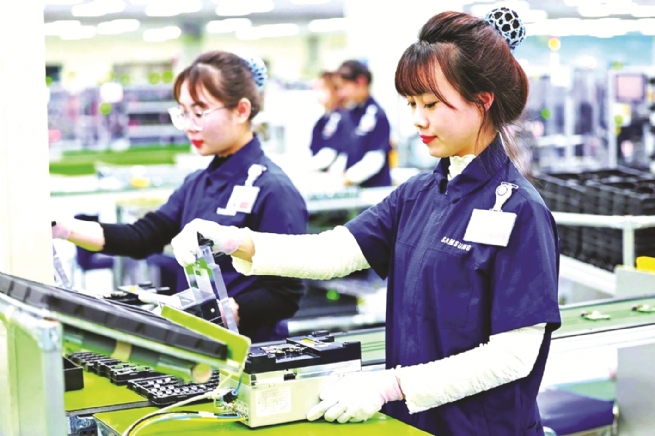Developing Vietnam’s Supporting Industries: Lessons from South Korea’s Success
Vietnam’s supporting industries are steadily strengthening their position in global supply chains, yet they still face significant challenges in scale, technology, and ability to integrate.
In this context, South Korea’s development model, which emphasizes strong coordination between government and the private sector, targeted support for small enterprises, and promotion of technology transfer, provides valuable insights for Vietnam to boost competitiveness and advance toward sustainable industrialization.

Illustrative photo
According to Dr. Can Van Luc and the research team at the Bank for Investment and Development of Vietnam (BIDV), South Korea, one of the “Four Asian Tigers”, accelerated industrialization from the 1970s by integrating into global value chains. During this period, the Korean government offered substantial incentives to Chaebols, large family-owned conglomerates, to drive rapid, export-focused growth and reduce import dependence. Leading Chaebols such as Samsung, Hyundai, LG, Daewoo, and SK emerged as flagship corporations. To ensure broader economic benefits, the government required Chaebols to outsource part of their component and parts production to smaller enterprises. This approach fueled the rapid growth of South Korea’s supporting industries throughout the 1970s and 1980s.
Dr. Can Van Luc explained that South Korea’s policies focused on integrating small and medium-sized enterprises (SMEs) into the supply chains of large corporations. Key measures included the 1975 Subcontracting Promotion Act, which mandated that large corporations purchase designated components from SMEs rather than produce them internally. This law significantly strengthened SME-large company linkages, with the proportion of SMEs serving as subcontractors rising from 19.7% in 1976 to 70% in 1990. In 2005, South Korea launched the “Materials and Components Development Strategy” to support automotive and electronics supporting industries. Samsung and Lucky Goldstar were designated as core enterprises, while other firms were tasked with producing components to replace imports.
In addition, South Korea established a financial support system for SMEs through credit guarantees. The Korea Credit Guarantee Fund (KODIT), a public financial institution, aims to promote balanced economic development by providing credit guarantees for unsecured SME loans, thereby supporting technological development and innovation. Korea also offered targeted tax incentives to encourage SME growth.
South Korea has placed strong emphasis on business incubation, providing entrepreneurship and financial advisory support. Approximately 80% of these incubators are located within universities and research centers, facilitating collaboration between enterprises and academic institutions. The government also introduced many policies to encourage technological innovation, including the Technology Innovation Promotion Act for SMEs, simplification of business registration procedures, and incentives related to land use and asset management.
In 2014, South Korea launched a comprehensive industrial policy under the Manufacturing Innovation 3.0 strategy, aiming to advance smart manufacturing technologies and promote the transition to smart factories leveraging key technologies such as the Internet of Things (IoT), big data, and cloud computing. The strategy set a goal of mobilizing roughly 1 trillion won in capital and building 10,000 smart factories by 2020. In 2019, Korean announced the long-term “Manufacturing Renaissance Vision,” targeting higher-value manufacturing through structural innovation and the adoption of intelligent, environmentally friendly technologies. The plan also defined R&D roadmaps across fields including technology, IoT, smart sensors, and robotics.
The success of South Korea’s supporting industry policies stems from close coordination between government and private sector, integrating SMEs into supply chains, fostering technological innovation, and advancing smart manufacturing.
Drawing on lessons from South Korea and other Asian countries, Dr. Can Van Luc emphasized that a comprehensive industrial policy with clear direction, effective implementation, and alignment with national economic context is critical for developing Vietnam’s supporting industries. Financial support policies such as tax incentives, fee reductions, and preferential loan programs are particularly important. Policies should also encourage domestic firms to collaborate and gradually supply products to FDI enterprises, while seizing opportunities to master key technologies.
Additionally, Vietnam should promote linkages between large domestic corporations and SMEs, establish streamlined legal and administrative frameworks to support business operations, create incubators and entrepreneurship advisory centers, and accelerate innovation and commercialization of scientific and technological achievements.








